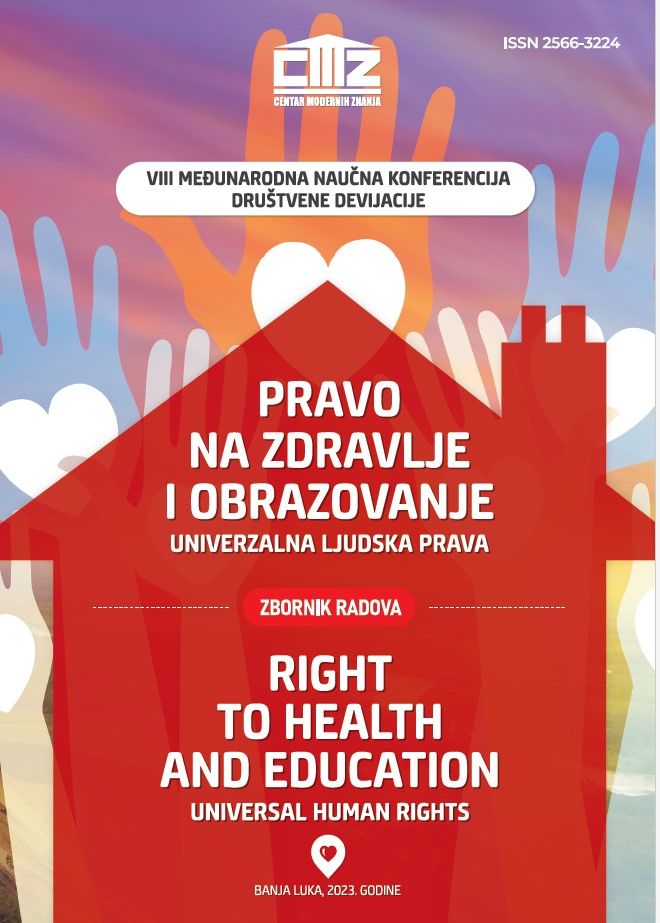INTIMATE RELATIONS BETWEEN YOUNG MEN AND WOMEN: INDICATORS OF DISHARMONY
DOI:
https://doi.org/10.7251/ZCMZ0123718MAbstract
The article presents a theoretical and empirical analysis of the characteristics of sexual behavior and indicators of disharmony of intimate relationships of young men and women of student age. The purpose of the study is to identify the correlations of the manifestations of intimate relationships and sexual behavior among young people. The content will consider various approaches to the analysis of intimate and sexual relations from the standpoint of sexology and psychology. The main problems and contradictions will be explained on the basis of which the strategy of empirical research is based are substantiated. The respondents were 62 people (32 young women and 30 young men aged 18 - 23 years) studying at different faculties of the Peoples' Friendship University of Russia in bachelor's and master's degrees. To diagnose the parameters of disharmony of intimate relationships, the author's modification of the methodology «Subjective assessment of interpersonal relationships» by S.V. Dukhnovsky and the methodology «Experience of close relationships» by K. Brennan and R.K. Fraley in the adaptation of T.V. Kazantseva were used, to assess the characteristics of sexual behavior – «Eysenk inventory of attitudes to sex» by H.J. Eysenck and «Assessment of the sexual profile» by O.F. Potemkina. In general, in sexual behavior, the subjects show favorable sexual attitudes, note sexual satisfaction and fulfillment, as well as sexual neuroticism, indicating the difficulties in young people in creating intimate relationships. As a result of the correlation analysis, the study revealed indicators of sexual behavior characterizing disharmony in intimate relationships of young men and women, which indicate insufficient psychological readiness for intimate relationships of young people. The characteristics of disharmony in intimate relationships presented in the study allowed the authors to formulate conclusions and recommendations to specialists in the field of education on the organization of psychological and pedagogical technologies for the formation of sexual culture among modern youth.
